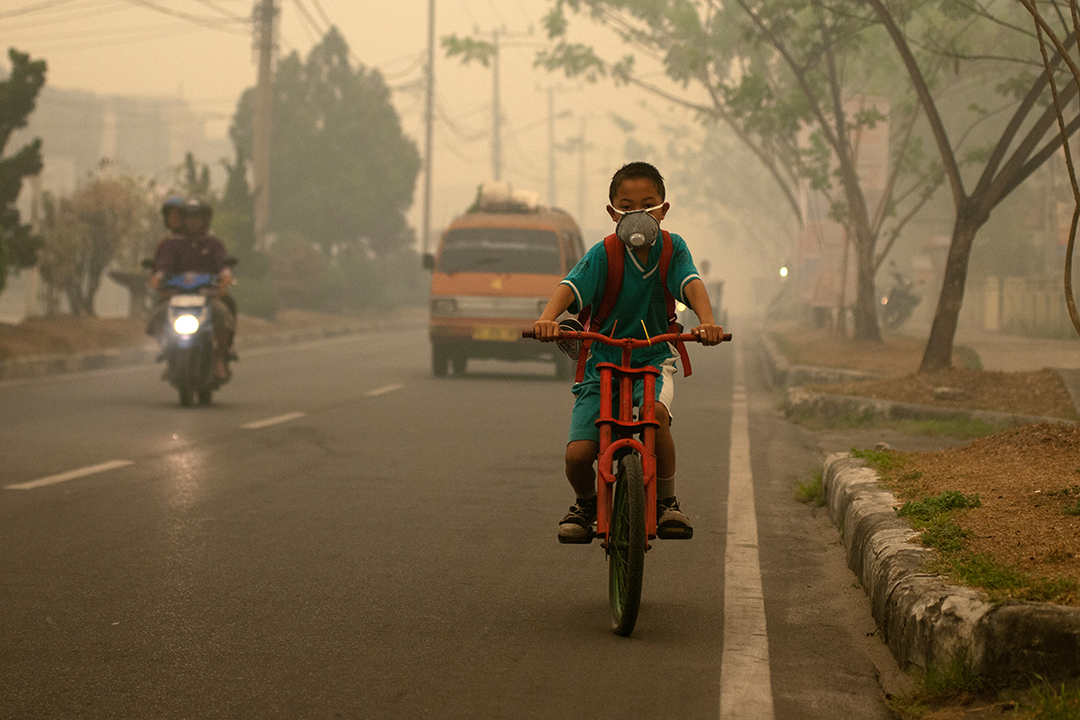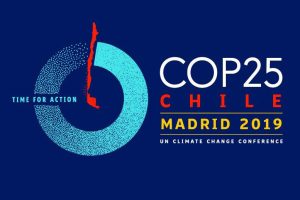A side event that convened during the 2019 UN Climate Change Conference in Madrid, Spain, considered the ways in which integrated actions on air quality and inclusion in climate plans of short-lived climate pollutants (SLCPs) such as methane and black carbon benefit near-term climate action, air quality, and health. The event also showcased activities of national and non-governmental actors that tackle both climate and air quality challenges.
Presented by the Government of Nigeria, Environmental Defense Fund (EDF), German Climate Association (DKK) and the Institute for Advanced Sustainability Studies (IASS), the event titled, ‘Strengthening Climate Promises: Action on Air Quality to Enhance Nationally Determined Contributions (NDCs),’ took place on 5 December.
Yerima Peter Tarfa, Director, Department of Climate Change, Nigeria, said that since joining the Climate and Clean Air Coalition to Reduce Short-Lived Climate Pollutants (CCAC) in 2014, his country has identified 22 SLCP mitigation measures that would result in multiple benefits, including health improvements, crop loss reductions, water protection, and food security.
Shareen Yawanarajah, International Policy Manager, Energy Program, EDF, discussed methane reduction measures for enhancing climate ambition and air quality, noting that this requires engagement with major producers, namely the oil and gas industry, and a paradigm shift in the energy sector towards investments in natural gas.
María Amparo Martínez Arroyo, Director General, Instituto Nacional de Ecología y Cambio Climático (INECC), Mexico, highlighted the Supporting National Action and Planning on SLCPs (SNAP) initiative for Mexico, which was developed in 2019 with the aim of achieving a 51% reduction of methane and a 22% reduction of other greenhouse gases (GHGs) by 2030.
Bala Bappa, Federal Ministry of Environment, Nigeria, explained that the priority sectors for action in his country’s SNAP include cookstoves, agriculture, transport, brick kilns, and the oil and gas industry.
Speakers also highlighted, inter alia:
- black carbon as one of the main contributors to cardiovascular diseases, chronic respiratory diseases, and lower tract infections;
- capacity building to raise awareness on including methane and black carbon into the next round of NDCs; and
- the need to deploy available clean technologies to tackle air pollution.
A success story in South Africa was also spotlighted, where a correlation was made between the location of coal power plants, air quality, and human health. [IISD RS Coverage of Side Event] [Event Website]
* * *
IISD Reporting Services is providing coverage of selected side events during the UN Climate Change Conference in Madrid.
SDGs
Issues
- Agriculture & Food Security,
- Atmosphere,
- Energy Efficiency,
- Mitigation,
- National Action,
- Climate Change,
- Energy,
- Renewables,
- Governance,
- Health,
- Other Energy Sources,
- Human Settlements & Population,
- Industrial Development,
- Monitoring & Evaluation,
- Science,
- Sustainable Development,
- Stakeholder Participation,
- Water & Sanitation

